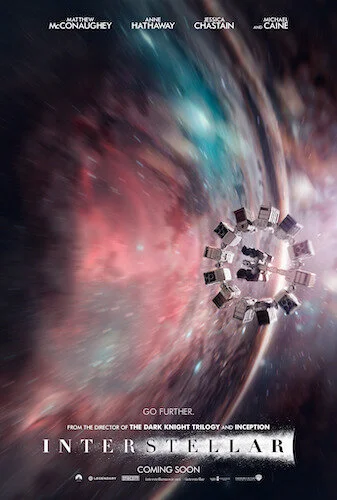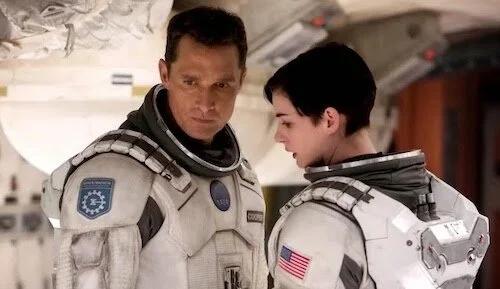Interstellar: On-This-Day Thursday
Every Thursday, an older film released on this opening weekend years ago will be reviewed. They can be classics, or simply popular films that happened to be released to the world on the same date.
For November 5th, we are going to have a look at Interstellar.
It’s been six years, so I think we can maybe make the claim that Interstellar is underrated. Perhaps not with super fans who have stuck by its side this whole time, but within the critical community. I get why the film might be flawed, especially with some minor tonal situations and the inevitable plot holes that arise with any time travel picture (so I personally don’t deduct any points for that latter part), but the underwhelming initial reaction Interstellar received from some outlets just escapes me entirely. I have never heard someone ugly cry in a theatre before, until the opening day showing of this film (I don’t think I need to bring up what part it was); this person was bawling loud enough for everyone to hear. I can’t say I don’t understand her. This is, in my opinion, Christopher Nolan’s most empathetic film to date, as if someone took a look at their family and wanted to capture the bittersweet passage of time that we cannot stop. That person happened to be Nolan, so of course Interstellar is far from straight forward.
Going back to that response in the theatre, I do find myself fighting mightily to not be shaken up or teary eyed every single time I watch this film, and to me that has to mean something. That means the tonal imbalances between the in-space and on-Earth footages don’t get in the way all that much. It means that the expository dialogue Nolan is infamous for is far from his coldest. It means that I get this film, personally. I find that people have one of two major responses to aging, especially when they have been separated for a while and can notice a massive change in one another. One such response is joy, knowing that this other person has lived life and grown. Then, there’s the take I often find myself having: sadness. Sadness that our own time is finite, and time itself carries on without us as we face it and weather it on a daily basis. That’s the kind of perspective Interstellar takes, particularly with its different relative perspectives of time in different parts of the universe. We can’t control our children’s aging, but we can choose to be there with them. That’s where Interstellar hits the hardest.
Interstellar makes time a villain, turning life into a precious commodity.
Obviously, Interstellar is beyond impressive on a technical level, and you’d be mad to expect anything less in a Nolan production. I personally find this film’s interpretation of time travel to be fine, and I see Interstellar as what we can see as the end result of the time travel; we’ll never know what life was like before time was altered. Does this have to mean that the film is full of inaccuracies? I’m perfectly fine with the unknown in this case, especially since it means that the entire film is the end result of love and a father wanting to reconnect with his daughter (although I always found it a little suspicious that he never tried to connect even remotely with his son nearly as much, but that’s none of my business). I guess this is as close to Steven Spielberg as Nolan is ever going to get, and that might translate to “this film is cheesy” to many. However, I don’t feel that way myself. Who is to say that all types of emotion rendering films have to be cheesy? Interstellar goes to great lengths — the outer reaches of the universe — for Christopher Nolan to feel his most down to Earth; it’s a beautiful irony, and I feel like the love for this film will only continue to grow over time.
Andreas Babiolakis has a Masters degree in Film and Photography Preservation and Collections Management from Ryerson University, as well as a Bachelors degree in Cinema Studies from York University. His favourite times of year are the Criterion Collection flash sales and the annual Toronto International Film Festival.






